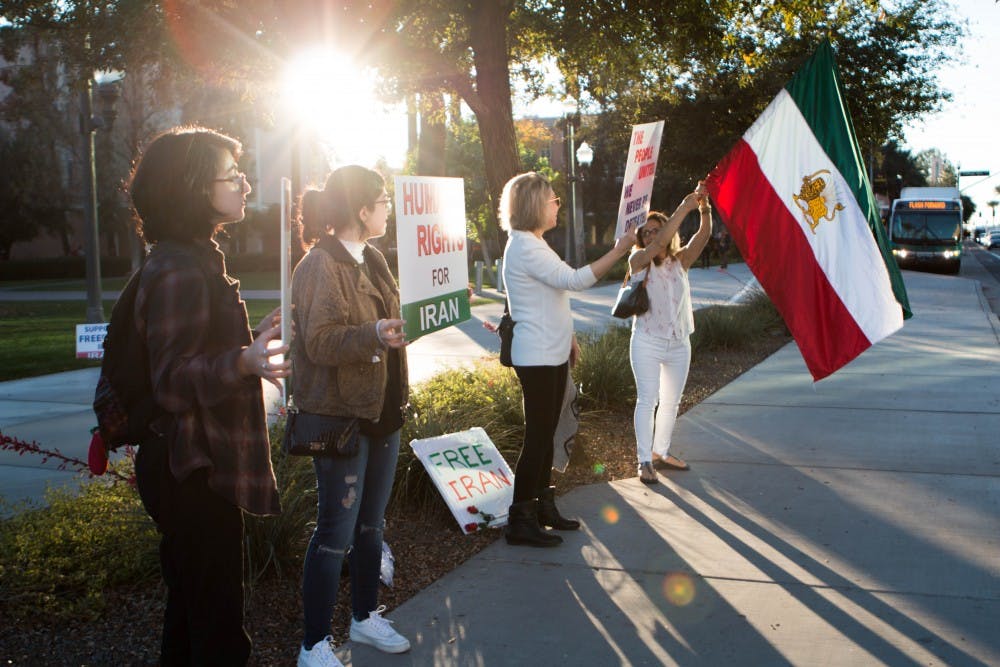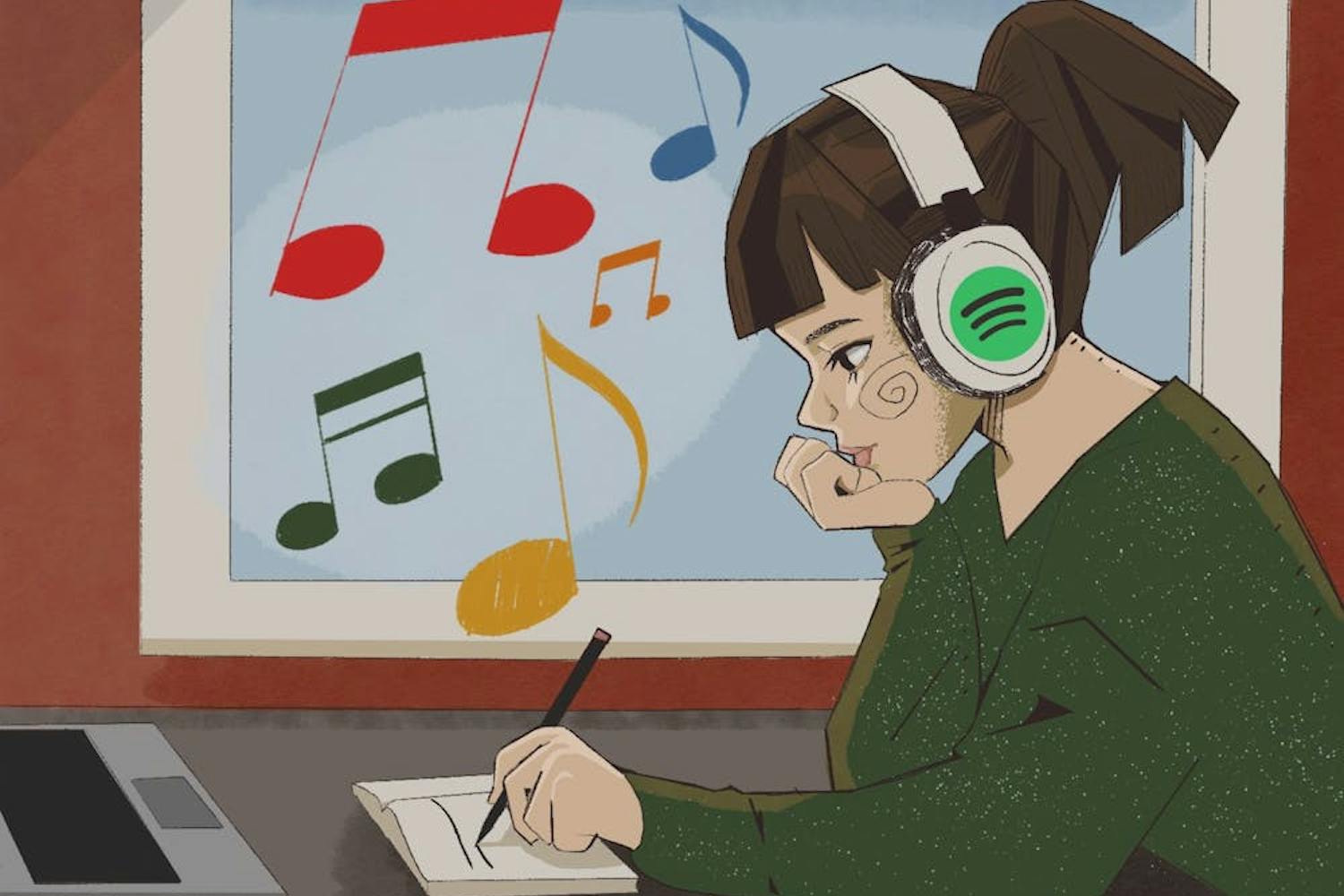Recent protests for democracy and liberty in Iran have triggered a response from ASU's network of Iranian students and alumni.
Around 75 students and civilians gathered at ASU's Tempe campus on Jan. 11 to support the protests against the Iranian government.
The protests were sparked after the deaths of five Iranians in the Evin Prison in Tehran and demonstrated solidarity with activists who have taken to the streets within the country for the past several weeks.
Renee Behinfar, an ASU alumna of Iranian descent, helped organize the Jan. 11 protest.
“Our purpose here is to support the voices of the freedom-seeking people in Iran,” she said. “All of them are risking their lives to speak out against the regime."
Behinfar said protesters in Iran are demanding human rights, fair elections, free speech and the release of all political prisoners, among other requests.
The ideal goal of the protests would be to gain the same rights as Americans, she said.
Although he is not of Iranian descent, Bob Dalpe, an ASU alumnus who served in the Middle East in the military, said he attended the protest to support Iranian protesters because of the importance of their aims.
Dalpe said his time spent in the Middle East made him more aware of Iran's political and social issues.
“It’s a big problem,” he said. “The government is supporting problems all over the world, whether it’s Hamas or ISIS or other fanatic groups out there.”
Dalpe said it is hard to relate to those protesting in Iran because protesters have rights in the U.S.
Shereen Millani, a senior studying applied biological sciences, is an Iranian-American who said the protest was important to her because she wants to stay connected to her cultural roots.
“Ever since the 1979 revolution, I guess I have seen this beautiful country Iran go downhill,” she said. “It’s nothing like it was previously when my parents were growing up.”
Millani said these protests were not as concise and thought-out as the 2009 protests against then-President Mahmoud Ahmadinejad, but that the citizens of Iran seem equally as passionate.
Because of this, some Iranians feel like this protest may not lead to substantial change, but if Americans can bring attention to the subject, it can help the cause of the activists, Millani said.
“It really is difficult (to protest from the U.S.)," she said. "You kind of feel almost alien to (Iranian) culture, and a lot of American-born, other cultured people feel that way. It is a culture I want to be in solidarity with and cherish and treasure.”
Khashayar "Shay" Khatiri, a political science and U.S. history senior is from Iran and has spent time researching Iran's protests.
He said the protests are important, but Iranians need to be patient.
"When the protests broke out I was very enthusiastic about what they could bring, but I understand that patience is a virtue when you are waiting for a radical change," he said.
Khatiri also said he expects the protests to become larger in the next few weeks, and that the Iranian regime will have more problems.
"I don't think for the Iranian regime it is possible to carry on as they have been for the last 40 years," he said.
Khatiri also said that he thinks people in the U.S. are following the protests because they love to see people fighting for democracy.
"Americans are fond of the idea of a self-representative republican form of government," he said. "That is a big theme of why every time there is an uprising of any kind against tyranny, Americans get very enthusiastic. They have an ideological sympathy for that."
Khatiri said the only way policy makers see to get rid of the headache Iran has caused the U.S. is by getting rid of their regime.
"We need to ask our government, our elected representatives and our policy makers to come up with a meaningful strategy to simultaneously contain the power of the Iranian government while empowering the protestors, or at least preventing brutal suppression of the protestors," he said.
Tooraj Bakhtiari, an Iranian-American and ASU alumnus, said while he was leaving a class at ASU 40 years ago, he heard people saying "death to the Shah" — and now, 40 years later, Iranians are protesting the government that came in the Shah's place.
“It is 40 years later and we are having the same thing here at ASU," he said. "Freedom is valuable, and it’s important, and we cannot take it lightly.”
Bakhtiari said he feels an obligation to protest now.
“As an American with Iranian background, it is my duty to be here so my kids don't have to come back here and protest again,” he said.
Reach the reporter at ajhowar6@asu.edu and follow @andrew_howard4 on Twitter.
Like The State Press on Facebook and follow @statepress on Twitter.




